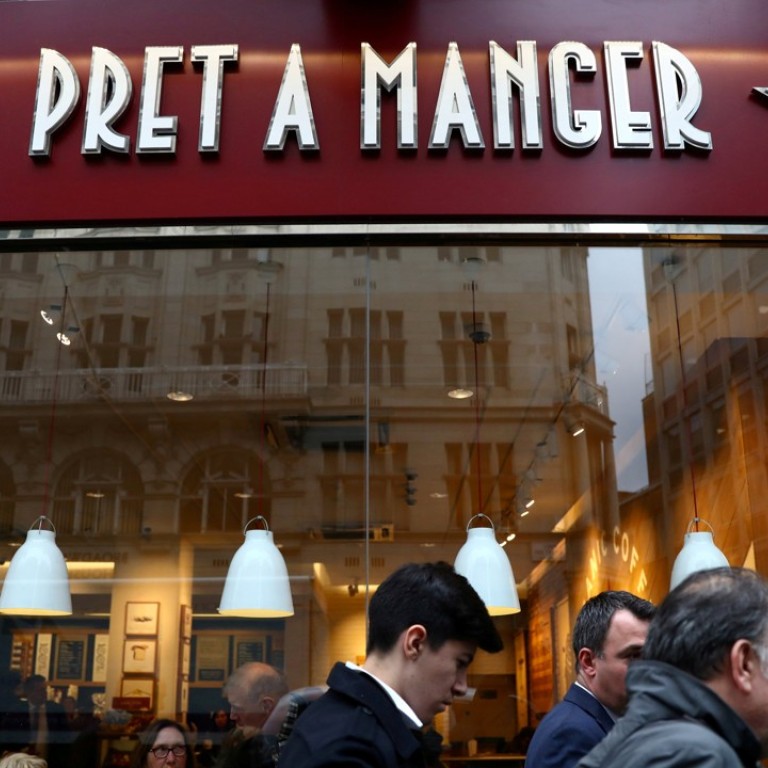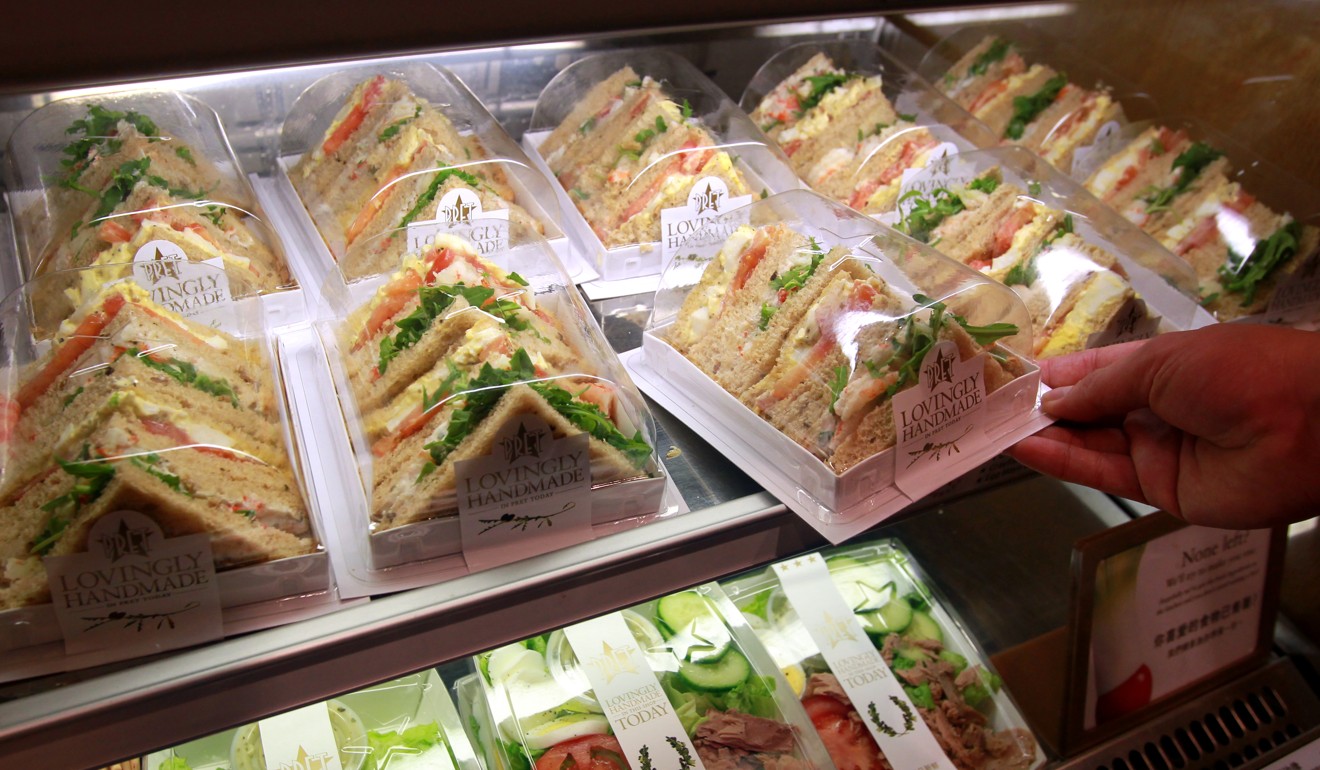
UK ad watchdog doesn’t swallow Pret a Manger’s ‘natural’ sandwiches, made with E472e, E471 and E300
British Advertising Standards Authority says it was misleading of sandwich chain to describe food containing chemical additives as ‘natural’
The British advertising watchdog has censured Pret a Manger for claiming that its sandwiches use natural ingredients, in a blow to the chain’s wholesome credentials.
The Advertising Standards Authority (ASA) said the ads on Pret’s Facebook page and website, which included the promise that it made “proper sandwiches avoiding the obscure chemicals, additives and preservatives” used by other fast-food chains and talked about “good, natural food” were misleading.

The decision followed a complaint by the Real Bread Campaign, which is calling for an “honest crust act” that would force manufacturers to list all their ingredients. Some are left out on the basis they are just part of the processing.
Pret says its sandwich bread contains three E-number ingredients – E472e, E471 and E300 – which are used to strengthen the dough and reduce the number of large holes in the bread. The additives are widely used in the industry to make sandwich bread, it said.
“We would really like to find a solution, and our food team has been working hard trialling recipes that do not use emulsifiers,” a Pret spokeswoman said. “They have not yet found one that meets the standards our customers expect.”
The Real Bread Campaign’s coordinator, Chris Young, said: “We welcome this ban, which sets a precedent that sends a clear message to food companies that unless they walk the natural food walk, it’s misleading to talk the natural food talk. This ruling is good for shoppers … and for the small, independent bakery and eatery owner who serve genuinely all-natural real bread sandwiches.”
Pret was founded in 1986 by the entrepreneur Julian Metcalfe, who went on to create the Itsu restaurant chain and Metcalfe’s skinny popcorn. It is now an ubiquitous presence on the British high street and beyond, a favourite of office workers who appreciate its ability to spot the latest food trends, from the rise of the avocado to vegan-friendly options such as sweet potato falafel.
The company has become a global sandwich empire, with more than 500 stores and sales approaching £800 million (US$1.14 billion) in 2017 as it conquered new markets including the US. It is controlled by the private equity firm Bridgepoint and there has been speculation it is preparing for a stock market flotation in New York that could value it at more than £1.5 billion.
Pret’s food and coffee director, Clare Clough, said: “Since day one, Pret has been on a mission to create handmade, natural food, avoiding obscure chemicals and preservatives. The ASA has upheld in part a complaint about our use of the word natural in two instances online.
“We do, of course, take on board the views of the ASA and have already made the requested changes. We believe we represent Pret’s food honestly and we always welcome feedback.”
The ASA said the two ads should not appear again in their current form. “We told Pret a Manger to ensure their ads did not claim or imply that their food was ‘natural’, unless their products and ingredients were in line with consumer expectations of the term,” it said.
Rising levels of obesity and concerns about food provenance and the environment have led to growing scrutiny of how food manufacturers and retailers run their businesses. Recent research by global nutrition experts found that people in Britain buy more ultra-processed food than any other European country.
The Real Bread Campaign first approached Pret in 2015, urging the company to remove artificial additives or alter its marketing claims. After no progress was made the campaign, which is part of the charity Sustain: the alliance for better food and farming, complained to the ASA at the end of 2016.

